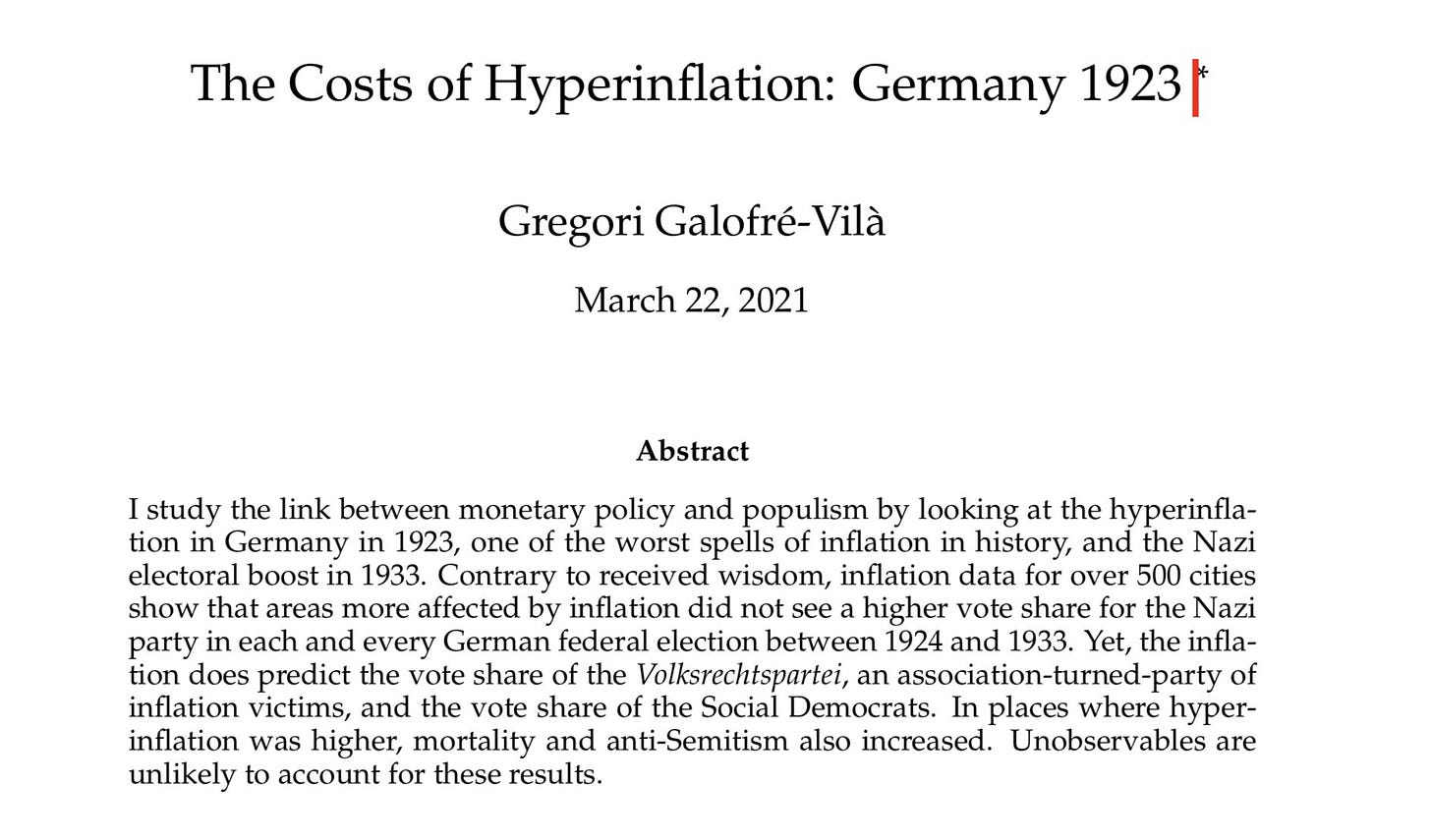German inflation worries and distorted memories of history
Misremembering Weimar promotes inflation concerns today
The trauma of hyperinflation from the days of the Weimar Republic casts a long shadow. It still influences Germans' views on inflation and economic policy today. A large proportion of Germans have distorted perceptions of economic history that are firmly rooted in collective memory, fuelling current concerns about inflation.
Lukas Haffert, Nils Redeker and Tobias Rommel provide a representative survey of Germans' memories of economic history concerning the interwar period. Almost half of the respondents conflate the mass unemployment and poverty of the early 1930s with the hyperinflation that ended in 1923. The survey shows that this conflation is more common among well-educated and politically interested people.
Only one in 25 Germans today knows that the crisis of the 1930s was characterized by deflation (falling prices). When Germans are asked to characterize the Great Depression in their own words, they describe it simultaneously as a crisis of inflation and unemployment. The Weimar Republic, they say, was consistently plagued by high inflation.
Because the hyperinflation up to 1923 and the Great Depression of the 1930s in German collective memory merge into one event, a misconception can dominate public discourse: hyperinflation directly led to the rise of the Nazis! Recent research by Gregore Galofre-Vila, however, suggests that there is no evidence for such a direct impact: linking inflation data for more than 500 German cities with election results between 1924 and 1933 shows that people in areas more affected by (hyper)inflation did not vote to a greater extent for the National Socialist party.
The Nazis had only 2 percent of the vote in 1928, but 38 percent in 1932. The mass effect of Nazi electoral success in the early 1930s occurred in an environment of deflation. Reich Chancellor Brüning's austerity policies fuelled the electoral successes of the Nazi party and thus the rise of Hitler in the early 1930s.
The hyperinflation experience made Reich Chancellor Brüning and his cabinet wary of using expansionary policies to combat mass unemployment. The government took further austerity measures by emergency decree, and the Nazis proved extremely effective in exploiting the suffering of large segments of the German population caused by austerity policies for their political benefit.
Because of the severe impact of the collapse of democracy, the memory of the Weimar Republic remains a key reference point for postwar politics in Germany. Unfortunately, however, conclusions for current economic policy are regularly drawn on the basis of distorted memories.
This comment is a slightly adapted English translation of a column first published in the German newspaper “Handelsblatt”.






